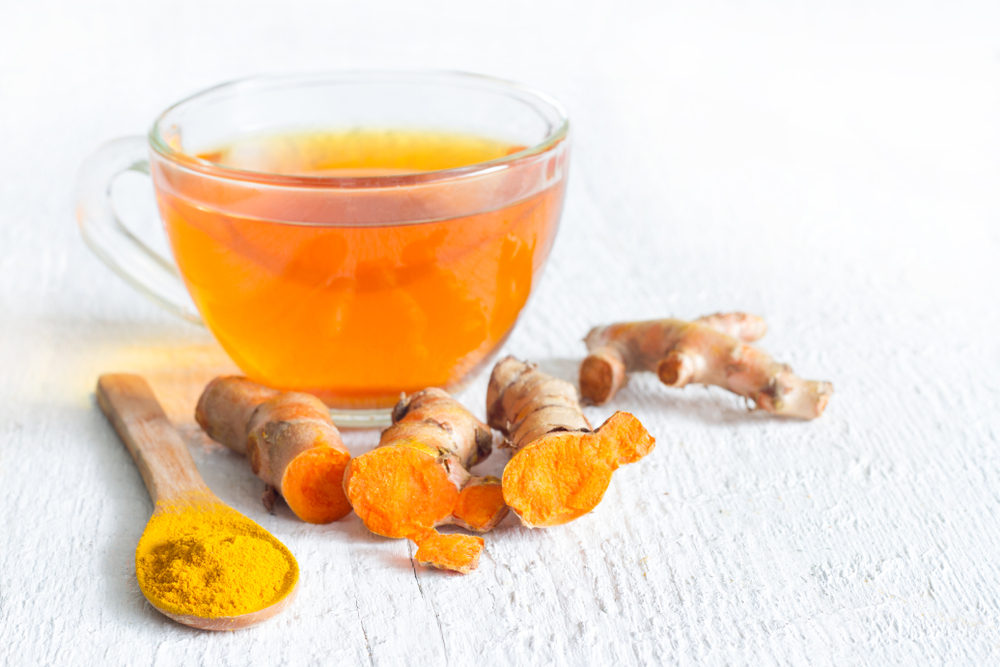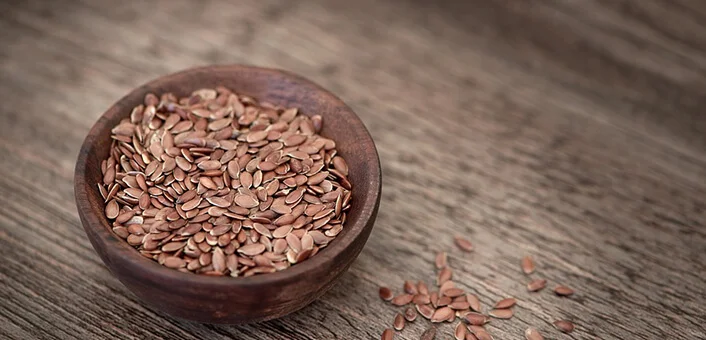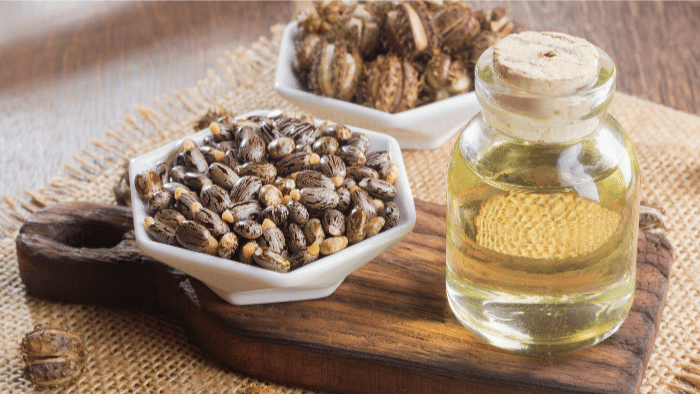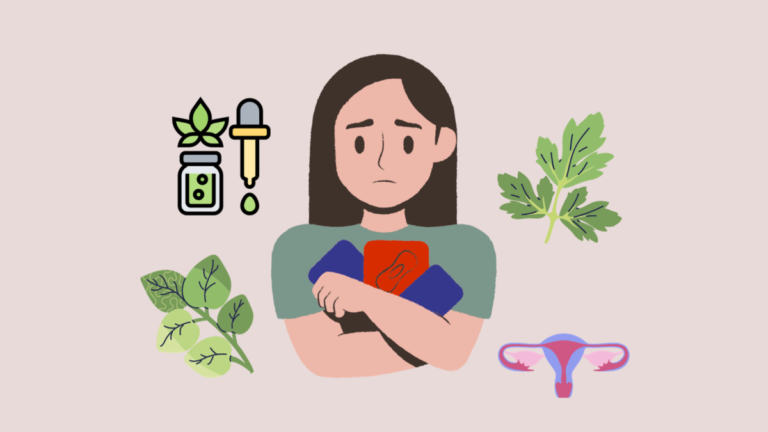Polycystic Ovary Syndrome (PCOS) is a common hormonal disorder that impacts countless women globally, resulting in symptoms like irregular periods, weight gain, acne, and infertility. Although conventional treatments can be effective in managing PCOS symptoms, there is a growing number of women who are exploring natural and holistic approaches to find relief from their symptoms. Luckily, numerous homemade remedies have proven to be effective in reducing PCOS symptoms and enhancing overall health. Let’s delve into a variety of effective homemade remedies for PCOS, which encompass dietary adjustments, herbal supplements, and lifestyle modifications.
Understanding PCOS (Polycystic Ovary Syndrome)
Polycystic Ovary Syndrome (PCOS) is a hormonal disorder that commonly impacts women during their reproductive years. It is defined by:
1. Irregular menstrual cycles: Infrequent or prolonged menstrual periods or no periods at all.
2. Hormonal imbalance: High levels of androgens (male hormones) and insulin resistance.
3. Polycystic ovaries: The presence of multiple small cysts on the ovaries can be detected by ultrasound.
Common symptoms of PCOS include:
– Weight gain and obesity
– Acne and skin problems
– Excess hair growth on the face, chest, and back
– Male pattern baldness
– Fertility problems and difficulty getting pregnant
– Depression and anxiety
The complicated disorder known as PCOS affects a good number of women in their reproductive years; its exact aetiology is yet unknown. Still, it’s thought that hormone imbalances, insulin resistance, and genes could all help to explain the problem.
PCOS can be managed through:
– Hormonal birth control pills
– Fertility medications
– Anti-androgen medications
– Lifestyle changes, such as diet and exercise
– Alternative therapies, such as acupuncture and herbal supplements
Timely diagnosis and treatment can effectively address symptoms, enhance fertility, and lower the likelihood of associated health issues like diabetes and heart disease.
Ayurvedic Treatments for PCOS
Ayurvedic treatment for PCOS aims to balance the body’s energies and hormones to alleviate symptoms and promote overall health. Here are some Ayurvedic approaches:
1. Dietary changes: Eat a balanced diet consisting of whole grains, fruits, vegetables, and lean proteins. Avoid processed foods, sugar, and dairy products.
2. Herbal remedies:
– Turmeric (curcumin) to reduce inflammation
– Cinnamon to regulate blood sugar
– Ginger to aid digestion
– Ashwagandha to reduce stress
– Triphala to regulate hormones
3. Panchakarma therapies:
– Abhyanga (oil massage)
– Shirodhara (oil pouring on the forehead)
– Basti (herbal enema)
– Nasya (nasal cleansing)
4. Yoga and stress management: Practice yoga, meditation, and pranayama to reduce stress and promote hormonal balance.
5. Ayurvedic medications: Take Ayurvedic formulations such as:
– Kanchnar Guggul to regulate hormones
– Varanadi Kashayam to improve fertility
– Chandraprabha Vati to balance hormones
6. Lifestyle modifications: Regularly exercise, maintain a healthy weight, and ensure enough sleep.
Ayurvedic treatment for PCOS aims to address the underlying imbalances and promote overall well-being. Consult an Ayurvedic practitioner for personalised guidance.
Homemade Remedies for PCOS (Polycystic Ovary Syndrome)
Here are some effective homemade remedies for PCOS:
Cinnamon Water

Cinnamon water is a widely used natural remedy for PCOS (Polycystic Ovary Syndrome) because of its potential benefits:
1. Insulin sensitivity: Cinnamon has been found to enhance insulin sensitivity, leading to better blood sugar control and a decreased likelihood of developing insulin resistance, a prevalent concern in PCOS.
2. Hormone regulation: Cinnamon may help balance hormone levels, including androgens, often elevated in PCOS.
3. Anti-inflammatory properties: Cinnamon’s anti-inflammatory properties may help reduce inflammation associated with PCOS.
4. Menstrual cycle regulation: Cinnamon may help regulate menstrual cycles and improve fertility.
To make cinnamon water for PCOS:
1. Mix 1/2 teaspoon of cinnamon powder with 1 cup of warm water.
2. Drink daily, preferably in the morning.
3. You can adjust the amount of cinnamon to your taste.
Tips:
– Ceylon cinnamon (Cinnamomum verum) is of higher quality and potency.
– Consult your healthcare provider before using cinnamon water, especially if you have any underlying medical conditions or take medications.
– Combine cinnamon water with a balanced diet and regular exercise for optimal benefits.
Turmeric Tea

Turmeric tea is widely recognised as a beneficial natural remedy for PCOS (Polycystic Ovary Syndrome) because of its potential advantages:
1. Anti-inflammatory properties: Turmeric’s active compound, curcumin, reduces inflammation, which is associated with PCOS.
2. Hormone regulation: Turmeric may help balance hormone levels, including androgens, often elevated in PCOS.
3. Insulin sensitivity: Turmeric improves insulin sensitivity, reducing the risk of developing insulin resistance.
4. Antioxidant properties: Turmeric’s antioxidants reduce oxidative stress, which can contribute to PCOS symptoms.
5. Menstrual cycle regulation: Turmeric may help regulate menstrual cycles and improve fertility.
To make turmeric tea for PCOS:
1. Mix 1/2 teaspoon of turmeric powder with 1 cup of hot water.
2. Add a pinch of black pepper to enhance curcumin absorption.
3. Drink daily, preferably in the morning.
4. You can adjust the amount of turmeric to your taste.
Tips:
– Use high-quality, organic turmeric powder.
– Consult your healthcare provider before using turmeric tea, especially if you have any underlying medical conditions or take medications.
– Combine turmeric tea with a balanced diet and exercise for optimal benefits.
Ginger Tea

Ginger tea is a natural remedy that may help alleviate PCOS (Polycystic Ovary Syndrome) symptoms due to its:
1. Anti-inflammatory properties: Ginger reduces inflammation associated with PCOS.
2. Hormone regulation: Ginger may help balance hormone levels, including androgens, often elevated in PCOS.
3. Insulin sensitivity: Ginger improves insulin sensitivity, reducing the risk of developing insulin resistance.
4. Antioxidant properties: Ginger’s antioxidants reduce oxidative stress, which can contribute to PCOS symptoms.
5. Digestive benefits: Ginger aids digestion, reducing symptoms like bloating and cramps.
To make ginger tea for PCOS:
1. Steep 1-2 teaspoons of fresh ginger in 1 cup of hot water.
2. Strain and drink daily, preferably in the morning.
3. You can add honey or lemon to taste.
Tips:
– Use fresh ginger for optimal benefits.
– Consult your healthcare provider before using ginger tea, especially if you have any underlying medical conditions or take medications.
– Combine ginger tea with a balanced diet and regular exercise for optimal benefits.
Berries and Leafy Greens

Berries and leafy greens are beneficial for PCOS (Polycystic Ovary Syndrome) due to their various properties:
1. Antioxidant properties: Berries and leafy greens reduce oxidative stress, which can contribute to PCOS symptoms.
2. Anti-inflammatory properties: Berries and leafy greens reduce inflammation associated with PCOS.
3. Hormone regulation: Berries and leafy greens may help balance hormone levels, including androgens, often elevated in PCOS.
4. Insulin sensitivity: Berries and leafy greens improve insulin sensitivity, reducing the risk of developing insulin resistance.
5. Fiber content: Berries and leafy greens are fibre-rich, which can help regulate blood sugar levels and improve digestion.
Best berries for PCOS:
– Blueberries
– Raspberries
– Strawberries
– Cranberries
Best leafy greens for PCOS:
– Spinach
– Kale
– Collard greens
– Broccoli
To incorporate berries and leafy greens into your diet, you can:
– Eat a mix of berries as a snack or add to oatmeal/yoghurt
– Add leafy greens to salads, smoothies, or sauté with garlic as a side dish
Flaxseeds

Flaxseeds are beneficial for PCOS (Polycystic Ovary Syndrome) due to the following reasons:
1. Omega-3 fatty acids: Flaxseeds are rich in alpha-linolenic acid (ALA), which reduces inflammation and promotes hormone balance.
2. Fiber content: Flaxseeds are high in fibre, which regulates blood sugar levels, improves digestion, and supports healthy gut bacteria.
3. Phytoestrogens: Flaxseeds contain phytoestrogens, which may help balance estrogen and reduce androgen levels.
4. Antioxidant properties: Flaxseeds reduce oxidative stress, which can contribute to PCOS symptoms.
Benefits of flaxseeds for PCOS:
– Reduces androgen levels
– Regulates menstrual cycles
– Improves insulin sensitivity
– Supports weight management
– Reduces inflammation
How to consume flaxseeds for PCOS:
– Mix 1-2 tablespoons of ground flaxseeds with water or yoghurt.
– Add flaxseeds to oatmeal, smoothies, or salads.
– Consume flaxseeds regularly, ideally with breakfast.
Tips:
– Drink plenty of water when consuming flaxseeds.
– Start with small amounts and gradually increase.
– Consult your healthcare provider before using flaxseeds, especially if you have any underlying medical conditions or take medications.
Apple Cider Vinegar

Apple cider vinegar (ACV) may help alleviate symptoms of Polycystic Ovary Syndrome (PCOS) due to the following reasons:
1. Insulin-sensitizing properties: ACV enhances insulin sensitivity, lowering the risk of developing insulin resistance.
2. Hormone regulation: ACV may assist in balancing hormone levels, including androgens, which are frequently elevated in PCOS.
3. Anti-inflammatory properties: ACV reduces inflammation linked to PCOS.
4. Weight management: ACV promotes weight loss and maintenance, potentially improving PCOS symptoms.
5. Digestive benefits: ACV aids digestion, potentially reducing symptoms such as bloating and cramps.
How to use ACV for PCOS:
1. Mix 1-2 tablespoons of ACV with water and consume before meals.
2. Commence with a small dose and gradually increase.
3. Opt for raw, unfiltered ACV with the “mother” for best results.
Benefits of ACV for PCOS:
– Regulates menstrual cycles
– Reduces androgen levels
– Improves insulin sensitivity
– Supports weight management
– Reduces inflammation
Tips:
– Consult your healthcare provider before using ACV, particularly if you have underlying medical conditions or take medications.
– Monitor your blood sugar levels and adjust your dosage as needed.
– Combine ACV with a balanced diet and regular exercise for maximum benefit.
Spearmint Tea

Spearmint tea may help alleviate PCOS (Polycystic Ovary Syndrome) symptoms due to the following reasons:
1. Hormone regulation: Spearmint tea may help balance hormone levels, particularly androgens, often elevated in PCOS.
2. Anti-androgen properties: Spearmint tea has been shown to reduce androgen levels, which can help alleviate symptoms like acne, excess hair growth, and male pattern baldness.
3. Insulin sensitivity: Spearmint tea may improve insulin sensitivity, reducing the risk of developing insulin resistance.
4. Antioxidant properties: Spearmint tea reduces oxidative stress, which can contribute to PCOS symptoms.
5. Menstrual cycle regulation: Spearmint tea may help regulate menstrual cycles and improve fertility.
How to use spearmint tea for PCOS:
1. Steep 1-2 teaspoons of dried spearmint leaves in 1 cup of hot water.
2. Drink 2-3 cups daily, preferably after meals.
3. Combine with a balanced diet and regular exercise for optimal benefits.
Benefits of spearmint tea for PCOS:
– Reduces androgen levels
– Regulates menstrual cycles
– Improves insulin sensitivity
– Reduces acne and excess hair growth
– Supports fertility
Tips:
Consult your healthcare provider before using spearmint tea, especially if you have any underlying medical conditions or take medications.
– Monitor your hormone levels and adjust your dosage accordingly.
– Combine spearmint tea with other natural remedies and lifestyle changes for optimal benefits.
Castor Oil Pack

A castor oil pack may help alleviate PCOS (Polycystic Ovary Syndrome) symptoms due to its:
1. Anti-inflammatory properties: Castor oil reduces inflammation associated with PCOS.
2. Hormone regulation: Castor oil may help balance hormone levels, particularly prostaglandins, which can affect menstrual cycles.
3. Improved circulation: Castor oil packs increase blood flow to the reproductive organs, promoting healing and reducing inflammation.
4. Reduced ovarian cysts: Castor oil packs may help reduce the size and number of ovarian cysts.
5. Relaxation and stress relief: Castor oil packs can help reduce stress and promote relaxation, improving overall hormonal balance.
How to use a castor oil pack for PCOS:
1. Soak a cloth in warm castor oil.
2. Apply to the lower abdomen.
3. Cover with a heating pad or warm compress.
4. Leave on for 30-60 minutes.
5. Repeat 2-3 times a week.
Benefits of castor oil packs for PCOS:
– Reduces inflammation and pain
– Regulates menstrual cycles
– Improves hormone balance
– Reduces ovarian cysts
– Promotes relaxation and stress relief
Tips:
– Consult your healthcare provider before using castor oil packs, especially if you have any underlying medical conditions or take medications.
– Use high-quality, pure castor oil.
– Follow proper instructions for use.
Yoga and Meditation

Yoga and meditation can be beneficial for alleviating PCOS (Polycystic Ovary Syndrome) symptoms by:
1. Reducing stress: Yoga and meditation can reduce cortisol levels, which can help address hormonal imbalances.
2. Regulating hormones: Yoga and meditation can assist in balancing hormone levels, including insulin and androgens.
3. Improving insulin sensitivity: Practicing yoga and meditation can enhance insulin sensitivity, lowering the chances of developing insulin resistance.
4. Aiding weight management: Yoga and meditation can support weight loss and maintenance, improving PCOS symptoms.
5. Enhancing fertility: Yoga and meditation can improve fertility by reducing stress and promoting hormonal balance.
6. Improving mental health: Yoga and meditation are effective in alleviating anxiety and depression, which often coexist with PCOS.
Recommended yoga poses for PCOS:
1. Child’s pose (Balasana)
2. Downward-facing dog (Adho Mukha Svanasana)
3. Cobra pose (Bhujangasana)
4. Seated forward fold (Paschimottanasana)
5. Plow pose (Halasana)
Recommended meditation techniques for PCOS:
1. Deep breathing exercises
2. Guided meditation
3. Visualization
4. Mindfulness meditation
5. Yoga Nidra
Tips:
– It is essential to seek guidance from your healthcare provider before embarking on a yoga or meditation practice, particularly if you have any pre-existing medical conditions.
– Find a qualified yoga or meditation instructor with experience working with PCOS patients.
– Practice regularly to experience benefits.
Omega-3 Rich Foods

Omega-3-rich foods can help alleviate PCOS (Polycystic Ovary Syndrome) symptoms:
1. Reducing inflammation: Omega-3 fatty acids help decrease inflammation associated with PCOS.
2. Improving hormone balance: Omega-3s support hormone production and regulation.
3. Enhancing insulin sensitivity: Omega-3s can increase insulin sensitivity, reducing the risk of developing insulin resistance.
4. Supporting heart health: Omega-3s help lower triglycerides and reduce blood pressure, improving overall heart health.
5. Aiding weight management: Omega-3s support weight loss and maintenance.
Best omega-3-rich foods for PCOS:
1. Fatty fish:
– Salmon
– Sardines
– Anchovies
– Mackerel
2. Nuts and seeds:
– Flaxseeds
– Chia seeds
– Walnuts
– Hemp seeds
3. Other sources:
– Fortified eggs
– Grass-fed beef
– Omega-3 enriched dairy products
Tips:
– Consult your healthcare provider before making significant changes to your diet.
– Choose high-quality, sustainable sources of omega-3-rich foods.
– Consider supplements if you’re unable to get enough from your diet.
Conclusion
Addressing PCOS symptoms involves adopting a holistic approach that encompasses making adjustments to your diet, lifestyle, and stress management techniques. This article provides a comprehensive guide to homemade remedies that can help alleviate PCOS symptoms, improve hormone balance, and promote overall health naturally and effectively. It is essential to seek guidance from a healthcare professional before incorporating new supplements or substantially altering your diet or lifestyle. Integrating these homemade remedies into your daily routine can effectively manage your PCOS symptoms and enhance your overall health.
Improve insulin sensitivity and hormone balance with these natural PCOS homemade remedies!!

